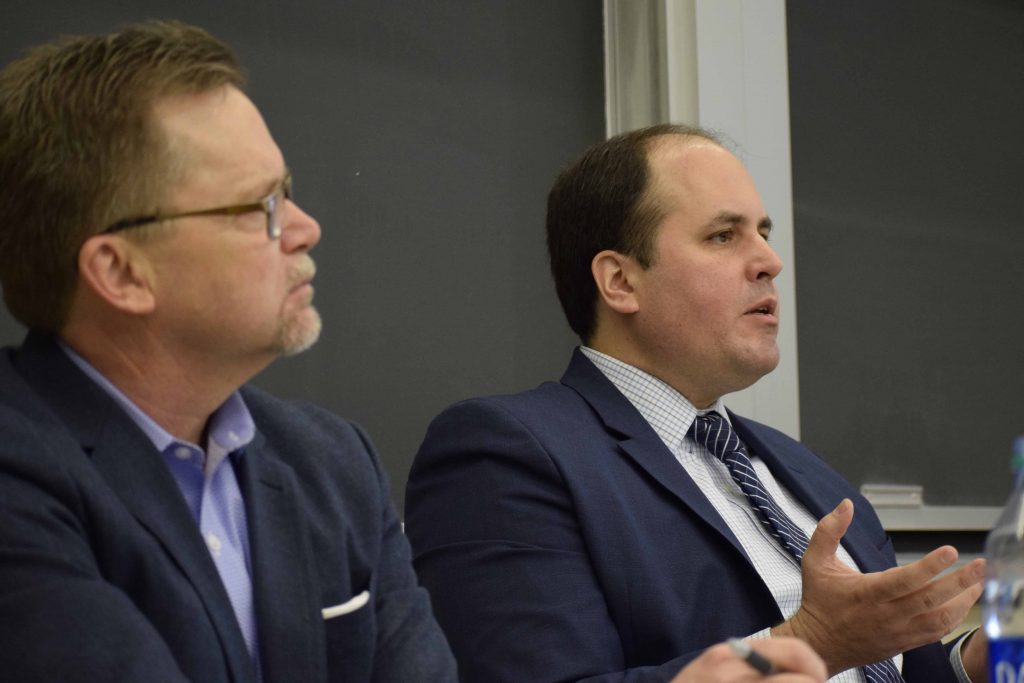BC Law Professors Kent Greenfield (left) and Ryan Williams discussed the question of whether the dead can govern the living through the Constitution. At the recent event, co-sponsored by the American Constitution Society and the Federalist Society, the pair debated which should be the guiding principle in the present day: originalism or non-originalism.
Greenfield focused on the constitution as a living and breathing document, free to be adjusted over time to retain meaning. He also pointed to modern problems that the framers could never have anticipated and questioned how an approach of originalism would handle these conflicts.
Williams, on the other hand, said there is a wide variety of viewpoints within the originalism argument. He maintained that the constitution should always bind us—either through its explicit statements or the framers’ perceived intent.
Though they agreed on many points, Greenfield did push back on what he felt was originalism’s “cloak of neutrality,” for the way that originalism presents itself as unbiased interpretation when it is not.
“Instead of it being a neutral method, it’s a cloak of [interpreters’] own philosophies under a guise of neutrally,” Greenfield argued.
Williams responded that this common argument was a bit overstated, and that political values will always find a way into decision making. In fact, he argued, originalism could potentially serve as a constraint to help stop biased interpretations.


